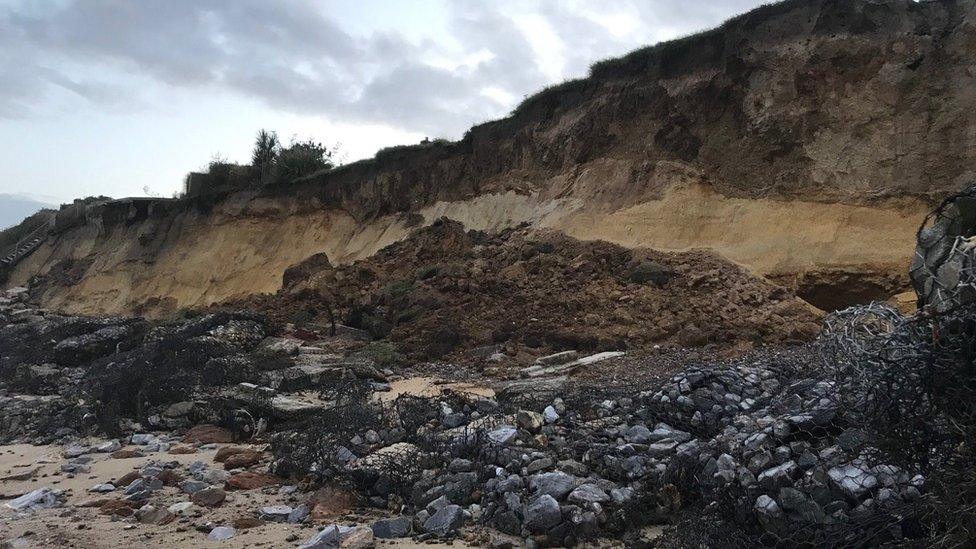Community rock piles to tackle coastal erosion in Norfolk and Suffolk
- Published
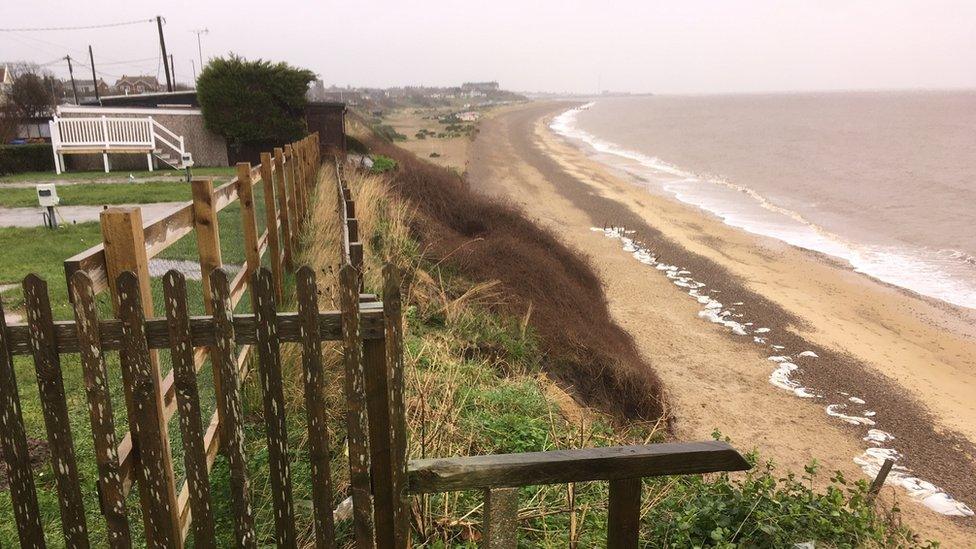
Pakefield, at the southern end of Lowestoft, has been subject to "unprecedented rates of coastal erosion" since 2019
Moveable homes and community rock piles are among ideas being explored in a £9.1m pilot tackling coastal erosion.
East Suffolk and Great Yarmouth councils are behind the proposals for the East Anglian coast.
Great Yarmouth, Hemsby, Southwold and Thorpeness would be the four key locations targeted.
Planners said the aim was to develop schemes that could "adapt to the challenges" of coastal erosion and flooding.
The councils have secured funding from the government and the Environment Agency, reported the Local Democracy Reporting Service.
East Suffolk's cabinet approved the outline business case for work to progress.
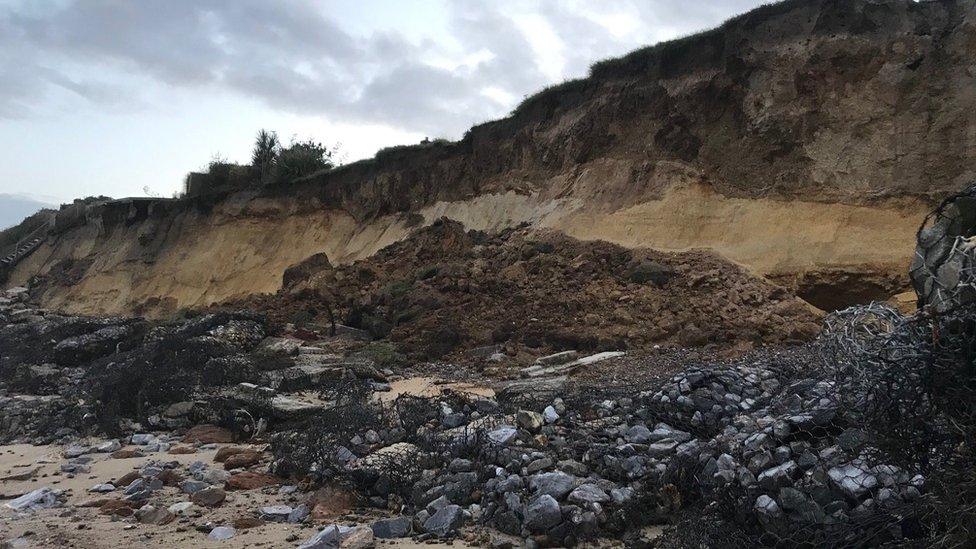
Cliff erosion at Thorpeness, Suffolk, where defences made of boulders in netting get battered by the waves
Conservative cabinet member for planning and coastal management at East Suffolk, David Ritchie, said: "It's a six-year project and the focus is to develop solutions to achieve a resilient coast that can adapt to the challenges of coast erosion, flooding, and the increased challenge of climate change and sea level rises."
The council said it would be looking at "innovative" ideas such as developing moveable homes, making infrastructure more resilient and providing better schemes to support clifftop properties which need to be sacrificed for "managed erosion" - where cliffs are not protected by defences and left to the mercy of the North Sea.
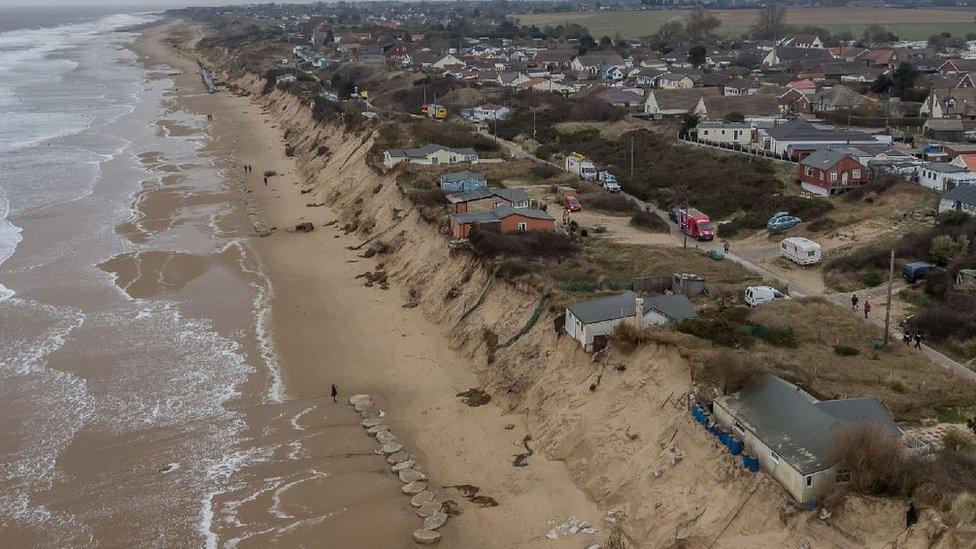
Storms in March 2018 devastated the coastline at Hemsby, Norfolk
Another idea was for rock piles which can be moved where needed.
The council said it hoped to produce a toolkit of options that would make coastal defences more integrated across the districts.
Upmarket towns such as Southwold and Aldeburgh would continue to be defended by hard defences wherever possible, "but in between those areas we have got a lot of coast that's not defended," said Karen Thomas, head of Coastal Partnership East.
"We need to give people real options so they can think about what they want for themselves and their communities going forward," she said.
David Beavan, Southwold councillor and leader of the Green, Liberal Democrat and Independent group at East Suffolk, said it was "absolutely brilliant" and would "proactively build a road to resilience for our communities".
Pakefield, Shotley Gate, and land between Corton and Gunton in Suffolk, will also be featured in the councils' Resilient Coasts programme.

Find BBC News: East of England on Facebook, external, Instagram, external and Twitter, external. If you have a story suggestion email eastofenglandnews@bbc.co.uk, external
- Published15 April 2022
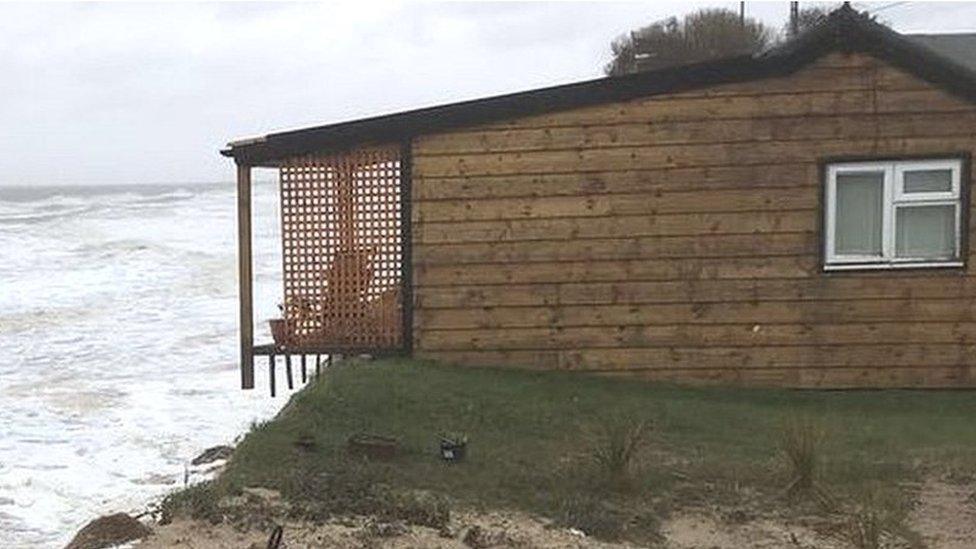
- Published22 February 2022

- Published23 October 2021
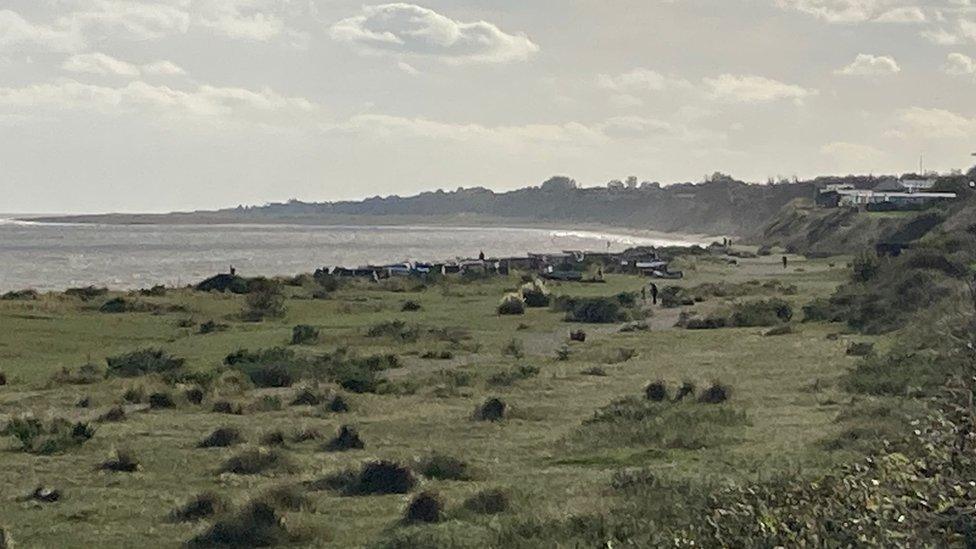
- Published28 August 2021
